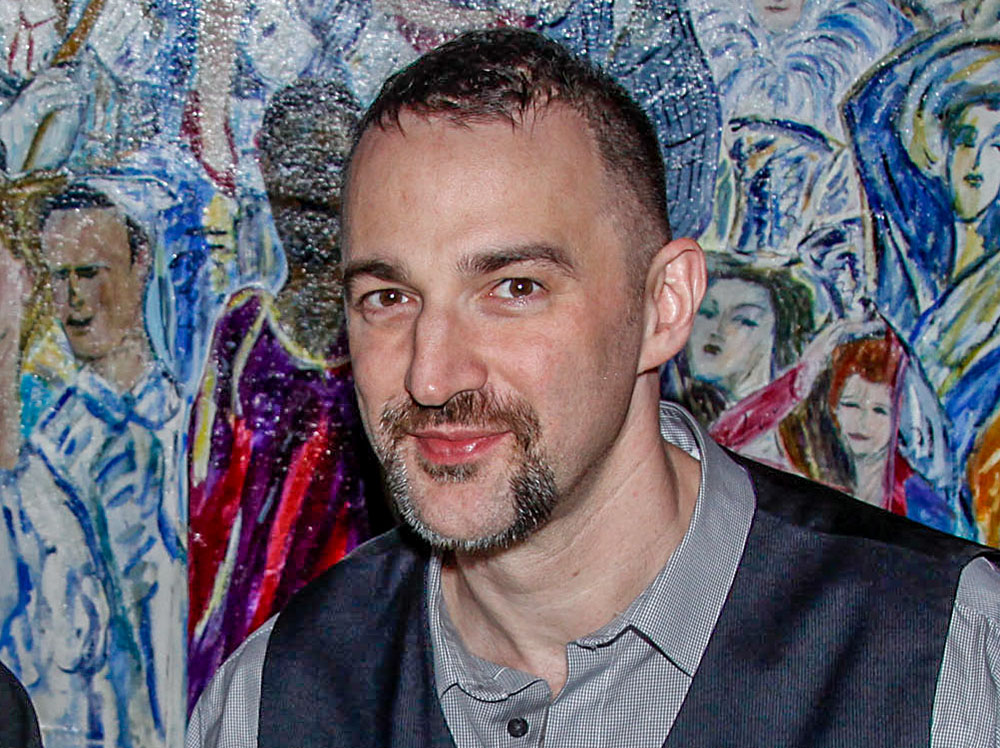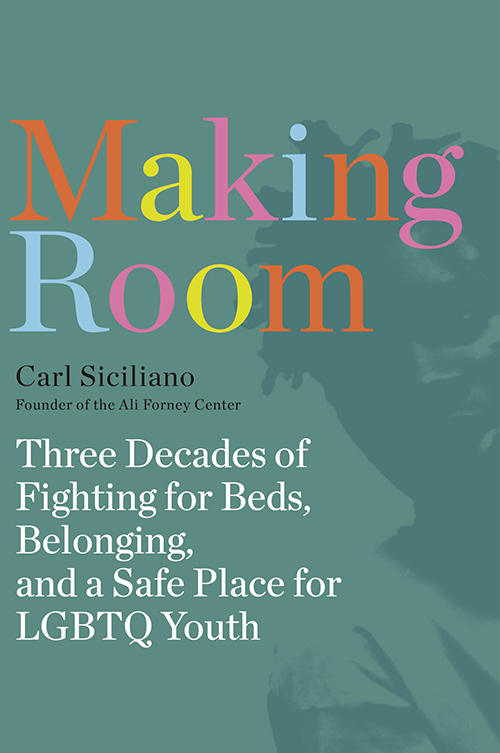
Carl Siciliano, author of Making Room: Three Decades of Fighting for Beds, Belonging, and a Safe Place for LGBTQ Youth, is seen in a 2011 photo. (Newscom/Wenn.com/Joseph Marzullo)

Making Room by Carl Siciliano is not an easy read.
This book takes us by the hand and leads us out of our comfortable, middle-class suburban homes, away from our stable jobs and support networks, to a place with no well-stocked pantry or fridge. It takes us to a dirty underpass or sketchy park bench, where an LGBTQ young person — a minor — huddles alone, untethered by any support, facing the reality of the world's indifference (at best) and cruelty (at worst).
And these children do not pass unscathed through the darkness. Many have been introduced to a cocaine addiction, and sometimes it is only in selling their body that they see a bed for the night.
In New York City during the '80s and '90s, many such youth went to SafeSpace, where they likely met a young, muscular gay Italian man named Carl, who had been deeply formed in hospitality by spending time with Dorothy Day's Catholic Workers. Carl felt a deep conviction that being gay was a spiritual gift that should not be hidden under a bushel — and he put this queer theology into practice by focusing his professional efforts on helping the most vulnerable LGBTQ population: the young.
This is not a finite problem with a finite solution, but we do not have a finite God.
It is heartbreaking to listen, through Carl's ears, to the firsthand accounts of what happened when these children came out as gay to their families. LGBTQ readers like myself will feel these stories deeply in their bodies, resonating and remembering. Even without physical violence, mental, emotional and spiritual violence can inflict much harm — worse when it comes from those who are meant to love you most.
But it's not only the families that are to blame. Making Room illustrates a powerful juxtaposition of Times Square before and after a supposed revitalization — an endeavor that disproportionately affected (and evicted) the LGBTQ community.
That we Americans have allowed this to happen historically and present day (see Nex Benedict's story) is deeply shameful, yet we often choose not to look our shame in the face. We turn away, mimicking the families who have turned away from these young people.
Carl Siciliano is an inspiration, but this book is not a fairytale where the knight in shining armor rides in to vanquish what threatens the village. As Carl learns, the hero of this story is the community, and we become heroes when we take a stand, extend a hand or speak up on behalf of someone. The existence of queer people (and others on the margins) will always be a disruption to the status quo, even when we celebrate them.
Throughout his time at SafeSpace, Carl battled a seemingly never-ending quest for funds, fighting even to receive the grant money earmarked by the city for assisting homeless queer youth — but never actually sent to the appropriate organizations.
There are beautiful passages in the book, too: talent shows where LGBTQ youth express the full spectrum of their vibrant personalities on a homemade runway with a favorite wig and eyebrow lines sharp enough to cut a man; resiliency that should not have been necessary; a will to survive that should never have been so fraught.
Advertisement
There are family-style meals for the holidays, where the kids tell Carl it's "the first Christmas I actually enjoyed" — though these moments of warmth and safety are punctuated by the slap of cold air when they have to go back onto the street at the end of the meal.
And while he is not a fairytale knight, Carl faces many monsters just to keep what meager resources they've been given: the city that doesn't want to give him the money, a new priest who wants to gentrify the building, potential donors who turn out to be predatory, and plenty of internal demons of his own, frequently wondering how he can endure the immensity of these hopeless stories — especially knowing he has a bed to go home to, but the kids don't.
Sometimes, the worst happens. A child dies. And each time it almost causes Carl to break apart. He carries on with the determination to prevent as many deaths as he can, taking comfort in being part of the communion of saints, knowing that it requires everyone doing their part with dignity, unafraid of what fires one might walk through.
In the end, that is the message I took away most strongly from the book. It takes the entire communion of saints, both those among us and those who have left this earth. This is not a finite problem with a finite solution, but we do not have a finite God.
When it comes to prayerfully upholding, standing alongside and financially supporting vulnerable and marginalized communities, we join forces with the Holy Spirit when we dare to act outside our comfort zones and do what is ours to do, for the benefit of all souls.








